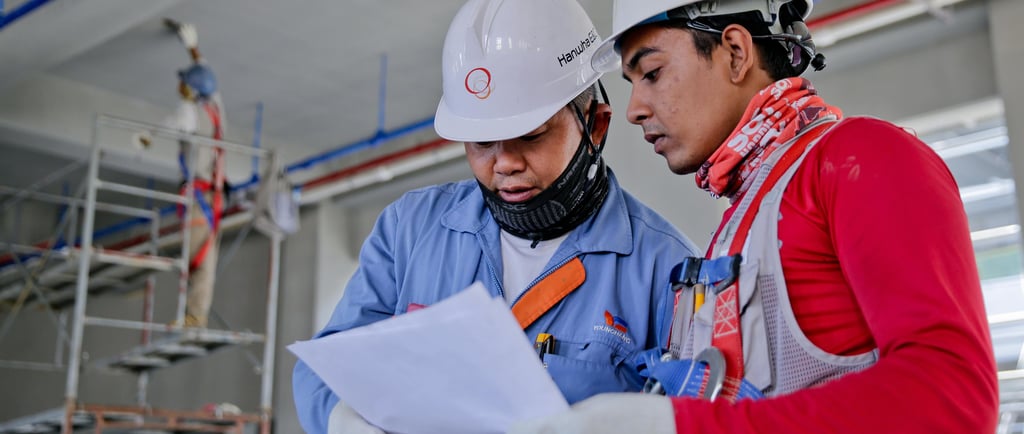New Immigration Measures for Construction Workers and Apprentices in Canada
Discover the latest Canadian immigration policies supporting construction workers and foreign apprentices. Learn about new pathways for out-of-status construction workers, a two-year policy for apprentices, and how skilled tradespeople can benefit from permanent residency opportunities.
BLOGSIMMNEWS
3/10/20252 min read


Canada has long relied on a strong construction workforce to support its growth. With the current housing crisis and evolving labor market, the government has introduced several policies to support construction workers, including pathways for out-of-status workers and foreign apprentices. Here's an overview of the latest immigration measures and their impact.
New Pathway Is Coming for Out-of-Status Construction Workers
Based on March 7, 2025 IRCC announcement “Canada takes action to support housing with new immigration measures”, Canada is launching a new pathway for out-of-status construction workers. This policy is unique and somewhat controversial, but it's not the first of its kind. In July 2019, the Temporary Public Policy for Out-of-Status Construction Workers in the GTA (Greater Toronto Area) was introduced for the first time. It was later expanded in 2021 and 2023, with the latest public policy having closed on December 31, 2024.
The details of eligibility and the specific application process are expected to be released soon. Assuming this new pathway follows the principles of previous temporary public policies, it will likely cover many occupations under NOC 2021 major groups 72, 73, and 75.
Supporters argue that the policy addresses labor shortages in construction and helps protect workers from exploitation; but on the other hand, critics worry it could encourage more people to stay in the country without legal status and make it easier for employers to hire undocumented workers. One way or another, Canada needs construction workers. If you are working without proper status in construction, this could be a great opportunity for you to gain permanent residency in Canada.
Temporary Policy for Foreign Apprentices
At the same time, a two-year public policy allowing certain apprentices to study without a study permit took effect on February 26 and will remain in place until 2027. To qualify, you must meet all of the following criteria when requesting your exemption and continue to do so until a decision is made:
You have a valid work permit.
You have a job in an eligible construction occupation.
You have an apprenticeship agreement registered with the relevant provincial or territorial apprenticeship and certification authority.
So far, the list includes 22 NOCs across TEERs 0, 1, 2, and 3. The National Occupational Classification (NOC) codes categorize different occupations, and below are the complete list eligible under the two-year policy for foreign apprentices:
Eligible occupations in TEER 0
NOC 70010 – Construction managers
NOC 70011 – Home building and renovation managers
Eligible occupations in TEER 1
NOC 21300 – Civil engineers
Eligible occupations in TEER 2
NOC 22300 – Civil engineering technologists and technicians
NOC 22303 – Construction estimators
NOC 72102 – Sheet metal workers
NOC 72106 – Welders and related machine operators
NOC 72200 – Electricians (except industrial and power system)
NOC 72201 – Industrial electricians
NOC 72300 – Plumbers
NOC 72310 – Carpenters
NOC 72311 – Cabinetmakers
NOC 72320 – Bricklayers
NOC 72400 – Construction millwrights and industrial mechanics
NOC 72401 – Heavy-duty equipment mechanics
NOC 72402 – Heating, refrigeration and air conditioning mechanics
NOC 72422 – Electrical mechanics
NOC 72501 – Water well drillers
Eligible occupations in TEER 3
NOC 73100 – Concrete finishers
NOC 73110 – Roofers and shinglers
NOC 73112 – Painters and decorators (except interior decorators)
NOC 73113 – Floor covering installers
For detailed duties, you can find them on the IRCC website.
Existing Permanent Residency Pathways for Construction Workers
Under the existing PR pathways, many construction trade occupations have been eligible for the Express Entry Federal Skilled Trade program. Moreover, trades not only fall under the Federal Economic Priorities categories in the 2025-2027 Immigration Levels Plan, but according to the IRCC announcement on February 27, many tradespeople, such as carpenters and plumbers, will have more opportunities to be invited to apply for permanent residency through category-based draws.
These policies signal Canada's commitment to addressing construction labor shortages and supporting skilled tradespeople.
If you need expert guidance on your eligibility and application, don’t hesitate to contact us today or book a consultation to get started!
Mapleaves Immigration Services
©2025 All rights reserved
Verify Authorized Representative
Only an authorized representative can provide Canadian immigration services to you for a fee. It’s law. If you use a paid representative who’s not authorized, your application may be returned or refused.


Contact: info@mapleavesimm.com
